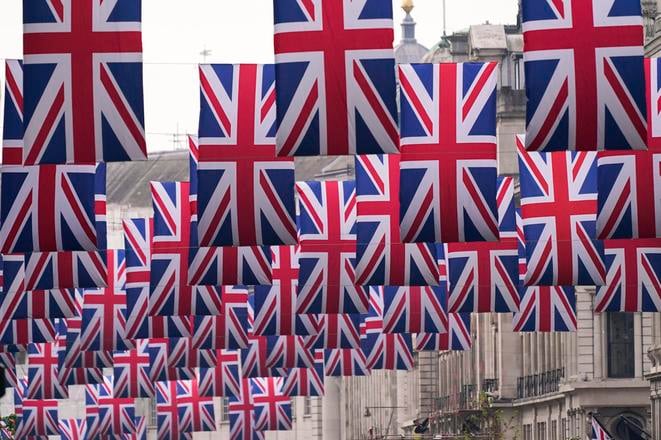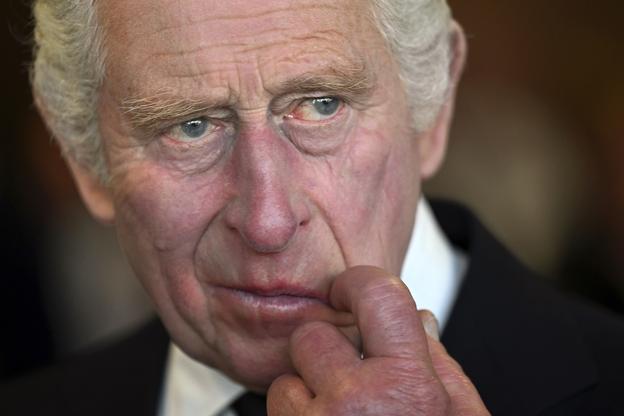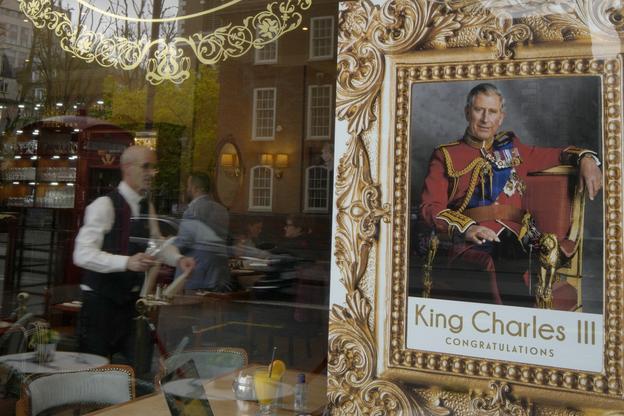The Coronation on May 6 will be broadcast across the world. Seventy years since Queen Elizabeth II was crowned at Westminster Abbey, His Majesty King Charles III,Head of State of the UK, the 14 Realms (including Canada, Australia and New Zealand), the UK Overseas Territories, and the Crown Dependencies, will be crowned in the same church. The Service will be conducted by the Archbishop of Canterbury. It will reflect the Monarch’s role today and look towards the future, while being rooted in longstanding traditions and pageantry. It will remind us of Britain’s past, while also celebrating the diversity, inclusion, values and democracy of modern Britain today.
But who is the person at the centre of this ceremony who at age 74 will be fulfilling his destiny to be King?
The official biographies will tell you that he became Prince of Wales in 1958, that he was the first member of The Royal Family to go to university (Cambridge), that he served in the Royal Air Force and the Royal Navy. He has two children – Princes William and Harry – from his first marriage to Lady Diana Spencer, and after their divorce and her tragic death in 1997 later married Camilla Parker Bowles, who will be crowned at his side as Queen. He has expressed strong views on conservation and the environment, architecture, education and the future of young people, and also taken concrete steps to make a difference in these areas for example as the founder of The Prince’s Trust and his School for the Built Environment alongside 20 other charitable foundations. He is better prepared for his role as Head of State than perhaps anyone, anywhere, before or since.
Special bond with Václav Havel
I had the privilege of working closely with His Royal Highness, as he then was styled, for three years between 2000 and 2003 as his Private Secretary for Foreign Affairs.
What did I discover?
That he works incredibly hard, reading and commenting on official papers early in the morning and late into the night, in between an almost constant round of official visits and engagements. That he knows the way the world works far better than most of his Head of State peers. Just in my three years, he visited countless hospitals, schools, factories, businesses, farms, retirement homes and places of worship in the United Kingdom and abroad. When he visits, he doesn’t just look but engages, talking to doctors about the latest medical techniques, to farmers about their crops, and teachers about their schools. He is not interested in abstractions. The Prince’s Trust, which he set up in 1976 on his naval pay, has directly helped one million disadvantaged young people to secure life-changing opportunities, and 90,000 to create their own businesses – young people whom society had often regarded as failures before The Prince came into their lives.
Similarly for his official trips abroad. These are serious business, and he took his role as the nation’s second most important diplomat after The Queen very seriously indeed. He would always aim to promote causes in which he believed, using his extraordinary network of connections to make things happen. I remember one visit to Rio de Janeiro in Brazil, when he visited a ‘favella’, one of the city’s notorious slums, which even the police did not dare to enter. When asked if he wanted extra security, he replied that the people who lived there would protect him. And they did, with pride, as he brought their daily life struggles in a world of drugs, violence and poverty to the attention of the Brazilian authorities. On the same visit to Brazil he was greeted as a hero by indigenous inhabitants of the Amazon rainforest, who had heard of his campaigning to protect their way of life and habitat. And he made sure, back in Brasilia, that he communicated their concerns to the senior politicians in the land.
Central Europe looms large in his world view. During those three years I accompanied him on visits to all of the so-called B9 countries (the three Baltic states, the Visegrad Four, Romania and Bulgaria). In many cases it was his second or third visit since the fall of the Iron Curtain, and it is no coincidence that Germany has been the destination of his first State Visit as King. He was close to Václav Havel, with whom he formed a special bond. But he also sought to help all the countries in the region on their complex path from totalitarian Communism to free market democracy. He visited the capitals, of course, but also the countryside of Transylvania, the forests of Central Slovakia, the old Jewish ghetto of Krakow and the mines of Katowice. He is an active patron of an organisation that tries to improve the lives of Romanian orphans, and was one of the first leading figures to promote organic farming in Lithuania to the delight of the small dairy farmer he visited. Famously,Slovak elm trees flourish in the garden he created at Highgrove House in Gloucestershire, itself a magnificent natural expression of his passion for the need for balance and humility in man’s relationship with the natural world.
Passionate, engaged, concerned man
In a world where every minute of his time is planned in advance, His Majesty loves spontaneity. One of my most difficult roles was to get him to the next engagement on time, trying to extract him from a deeply interested and passionate discussion with someone – usually an ordinary person, not a celebrity - who was making their own small difference in the world. I have seen him ‘work the room’ in a reception for 400 people, in which every person present felt afterwards that they had had their own private moment with ‘Prince Charles’. And I would come away with a long ‘to do’ list of tasks that flowed from those conversations, which he would always remember afterwards and remind me of if he hadn’t seen rapid progress. If something goes wrong during the immaculately planned ceremony of the Coronation, he will quietly be amused, and make a joke of it afterwards.
As King in a constitutional monarchy, there will inevitably be limits placed on his ability to speak his mind. The responsibilities of State will, even more than when he was heir to the throne, mean less time to pursue his personal interests. His Majesty will find this frustrating. But as Prince of Wales he has created a solid legacy and network of organisations, foundations and committed volunteers in Britain and across the globe who will keep his causes alive.
Many of those will be represented at the Coronation. As, for the first time, will be the different faiths that make up the United Kingdom’s rich tapestry of belief. Officially, the King bears the title Defender of the Faith, originally given by the Pope to King Henry VIII, and since the foundation of the Church of England a sign of the commitment of the monarch to that Church. His Majesty is a sincere Anglican believer, but is also conscious of the many faiths that make up modern Britain. He has often spoken out about the importance of good relations between Islam and Christianity. I can remember him making a point of visiting different Muslim communities in Britain, including those of Turkish and Indian origin, when the backlash after the events of 9/11 was at its height (he also quietly visited the families of the victims of that atrocity). As a man who builds connections, he sees no contradiction both in being a man of deep Christian faith, and in reaching out to and celebrating other denominations and religions. In that, he follows the footsteps of both his parents.
After 70 years of Queen Elizabeth II, we are still getting used to a new monarch.King Charles III takes up his role at a difficult moment in our history. He understands the possibilities and limits of constitutional monarchy. He will still want to make a positive difference to the planet, to the country, and to ordinary people. When I see St Edward’s Crown placed on his head in Westminster Abbey, I will be thinking of the passionate, engaged, concerned man I worked for as Prince of Wales. And I will, without reserve, declare “God Save The King”.



 Union flags hang over Regent Street ahead of the coronation of Britain's King Charles III, in London, on April 27, 2023. (source: AP Photo/Alberto Pezzali)
Union flags hang over Regent Street ahead of the coronation of Britain's King Charles III, in London, on April 27, 2023. (source: AP Photo/Alberto Pezzali)
 Britain's King Charles III. (source: Carl de Souza/Pool via AP)
Britain's King Charles III. (source: Carl de Souza/Pool via AP)
 A cafe displays a poster to celebrate the coronation of Britain's King Charles III in London, on April 28, 2023. (source: AP Photo/Kirsty Wigglesworth)
A cafe displays a poster to celebrate the coronation of Britain's King Charles III in London, on April 28, 2023. (source: AP Photo/Kirsty Wigglesworth)